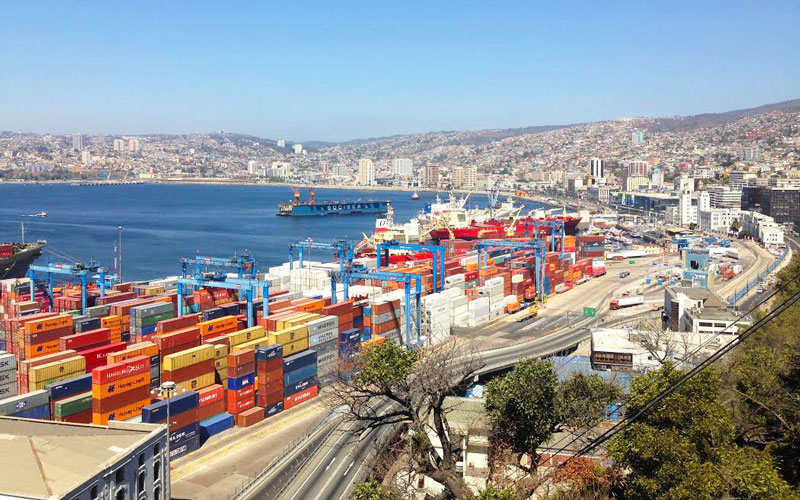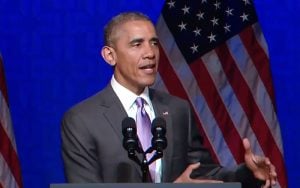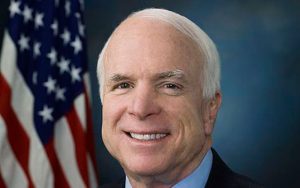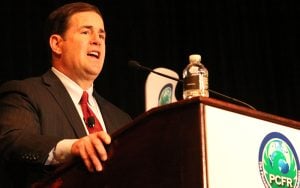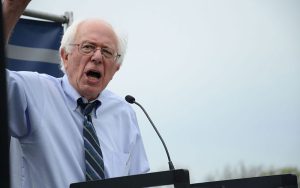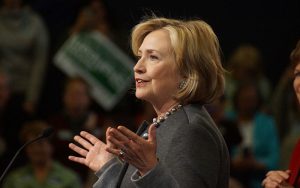The 12 countries that negotiated the Trans-Pacific Trade Partnership released long-awaited details of the deal they struck behind closed doors and Arizona companies expect to benefit.
“Last year we sold to 55 different countries, international sales are 50 percent of our business.” said Donald Zipperian, Vice President and Chief Technical Officer of Pace Technologies.
Read more:
Zipperian runs a business that manufactures products such as precision wafering saws, metallographic polishers and more.
Zipperian is excited about about new opportunities in Asian countries where he already does business including Malaysia, Japan, Singapore and Vietnam.
Pace Technologies now pays hefty tariffs as high as 50 percent on some products it exports to Malaysia.
Zipperian launched Pace Technologies in 1997 in his Minnesota basement. The company has since moved to Tucson and has a lab at the University of Arizona.
Pace Technologies now has 25 distributors around the world and Zipperian expects the TPP to help his company grow even more.
“In the last three years our business has doubled and doubled because we have increased exports and distribution around the world.”
In 2014 the United States set its fifth consecutive record for international exports totaling $2.35 trillion according to U.S. Secretary of Commerce Penny Pritzker.
Arizona saw a record number of exports in 2014 of more than $21 billion.
The bulk of the exports, $8.5 billion, went to Arizona’s number one trading partner, Mexico.
The TPP would facilitate trade with other countries, including Australia, Brunei, Canada, Chile, Japan, Malaysia, Mexico, New Zealand, Peru, Singapore and Vietnam.
The deal will expand existing trade agreements the U.S. has with six of these countries and open up new opportunities in Brunei, Japan, Malaysia, New Zealand and Vietnam.
All together the TPP countries account for 15 percent of global trade.
The Office of the U.S. Trade Representative says the deal would eliminate 18,000 different tariffs imposed by other countries on U.S. exports.
According to Business Roundtable, an organization of CEOs of major American corporations promoting “sound public policy and a thriving U.S. economy,” 58 percent of Arizona’s international exports currently go to TPP countries.
“The TPP will help build on these trade and investment relationships and support the Arizona jobs that depend on them,” Business Roundtable, which supports the deal, wrote in its report.
What the supporters are saying
— President Barack Obama in a statement on the TPP.
— Sen. John McCain (R-Arizona) in a press release on the TPP.
— Arizona governor Doug Ducey in a Cronkite News article.
As of 2012, 83,000 Arizonans were employed by foreign owned companies and as of 2014, 93,354 jobs were supported by Arizona export production, according to figures from Business Roundtable.
Richardson said TPP would be a huge benefit to Arizona export industries. Such industries include aerospace, electronics, agriculture, cosmetics and the growing biomedical technologies sector.
“Passage of TPP will go a long way to not only improve trade relations with much of the Asian rim but will allow Arizona products to get on the shelves of consumers (in Asia) more easily,” said Kristian Richardson, Director of U.S. Commercial Service in Arizona and Executive Secretary of the Arizona District Export Council.
“And that’s good for everybody. Why should (Arizonans) care? Because it will increase jobs here in Arizona.”
While TPP has support from companies, politicians and non-profits, there is also strong opposition.
What the opponents are saying
— Sen. Bernie Sanders (I-Vermont) in a statement on the TPP.
— Former U.S. Secretary of State Hillary Clinton in the first Democratic debate of the 2016 race.
— Humanitarian aid organization Doctors Without Borders in a press release denouncing the TPP.
“Only one out of 10 small and medium-sized business in Arizona export their products,” said Rebekah Friend, executive director, secretary-treasurer of the AFL-CIO’s Arizona chapter in an AZCentral opinion piece.
“Local business would benefit more from policies that raise wages for working families and invest in local infrastructure,” wrote Friend.
Opponents worry that rather than creating and bolstering jobs in the United States, corporations will have more incentives to move overseas seeking cheaper labor.
Richardson says this is not a valid concern and the supposed jobs that would go to other countries are already there.
“With the passage of the TPP you’re not going to hear this great sucking sound of jobs going away overseas,” he said.
Some public health groups are skeptical of the deal, which they said could allow pharmaceutical companies to spike drug prices and make it more difficult for generic drug companies to produce cheaper drugs.
Members of Congress on both sides of the aisle united to both support and oppose the TPP. In May the Senate gave President Obama fast track authority to negotiate the trade pact.
During that time contributions to Senate campaigns from the US Business Coalition for TPP spiked.
The money behind the TPP
3M
Abbott
ACE Group
Advanced Medica Technology Association
Aflac International
American Apparel & Footwear Association
American Automotive Policy Council
American Chemistry Council
American Council of Life Insurers
American Farm Bureau Federation
American Feed Industry
American Forest & Paper Association
American Insurace Association
American Legislative Exchange Council
American Meat Institute
American Soybean Association
Amway
APL
Apple
Applied Materials
Archer Daniels Midland Company
American Natural Soda Ash Corporation
Association of Global Automakers
Biotechnology Industry Organization
Boeing
Business Roundtable
BSA – The Software Alliance
CA Technologies
Cargill
Caterpillar
Chevron
Chubb Corp.
Citigroup Inc
Coalition of Services Industries
The Coca Cola Company Inc
Computing Technology Industry Association
Conoco Phillips
Consumer Specialty Products Association
Corn Refiners Association
Cotton Council International
Council of the Americas
Crop Life America
The Walt Disney Company
Distilled Spirits Council of the United States
The Dow Chemical Company
Ebay
Emergency Committee for American Trade
FedEx Express
Express Association of America
Exxon Mobil
Financia Services Forum
Fluor
FMC Corporation
Food Marketing Institute
Footwear Distributors & Retailers of America
Gap, Inc.
General Electric
General Motors
Glanbia USA
GlaxoSmithKline
Goldman Sachs
Grocery Manufacturers Association
Halliburton
Hanesbrands
Herbalife
Hewlett-Packard
Honda North America
Idaho Potato Commission
IDS International
IBM
Information Technology Industry Council
Intel
Interactive Advertising Bureau
International Dairy Foods Association
International Intellectual Property Alliance
J.C. Penney
John Deere
Johnson & Johnson
Kraft Foods
Levi Strauss & Co.
Lilly Louis Dreyfus Commodities
Mars
McGraw Hill Financial
Metlife
Microsoft
Mondelez International
Monsanto
Morgan Stanleey
Motion Picture Association of America
Motor & Equipment Manufacturers Association
National Association of Manufacturers
National Cattlemen’s Beef Association
National Center for APEC
National Confectioners Association
National Corn Growers Association
National Council of Wheat Growers
National Electrical Manufacturers Association
National Fisheries Institute
National Foreign Trade Council
National Milk Producers Federation
National Oilseed Processors Association
National Pork Producers Council
National Potato Council
National Retail Federation
National Turkey Federation
Nike
Northwest Horticultural Council
Novartis
Oracle
Outdoor Industry Association
Pet Food Institute
Pfizer
Philip Morris International
PhRMA
Plastics Industry Trade Association
PPG Industries
Procter & Gamble
Qualcomm Incorporated
Retail Industry Leaders Association
Securities Industry & Financial Markets Association
Semiconductor Equipment Materials International
Software & Information Industry Association
SPI: The Plastics Industry Association
Sudbury International Sweetners Users Association
Target Inc.
Telecommunications Industry Association
The Entertainment Software Association
The National Chicken Council
Time Warner Inc.
Toyota North America
TUMI
U.S. Apple Association
U.S. Chamber of Commerce
U.S. Grains Council
U.S. New Zealand Council
U.S. Whear Associates
USA-ITA
United States Council for International Business
United Technologies Corporation
UPS
US-ASEAN Business Council
Viacom
Visa
Wal-Mart Stores Inc.
Washington Council on International Trade
World Trade Center San Diego
Xerox
Zimmer
John Barrasso (R-Wyoming): $1,000.00
Michael Bennet (D-Colorado): $53,700.00
Roy Blunt (R-Missouri): $77,950.00
John Boozman (R-Arkansas): $5,050.00
Richard Burr (R-North Carolina): $60,000.00
Tom Carper (D-Delaware): $2,000.00
Dan Coats (R-Indiana): $4,500.00
Chris Coons (D-Delaware): $3,500.00
Tom Cotton (R-Arkansas): $3,500.00
Mike Crapo (R-Idaho): $24,000.00
Ted Cruz (R-Texas): $35,425.00
Joni Ernst (R-Iowa): $13,000.00
Dianne Feinstein (D-California): $1,000.00
Deb Fischer (R-Nebraska): $9,000.00
Jeff Flake (R-Arizona): $3,500.00
Chuck Grassley (R-Iowa): $35,000.00
Orrin Hatch (R-Utah): $11,000.00
Heidi Heitkamp (D-North Dakota): $10,500.00
Dean Heller (R-Nevada): $9,500.00
John Hoeven (R-North Dakota): $8,500.00
Johnny Isakson (R-Georgia): $102,575.00
Ron Johnson (R-Wisconsin): $18,500.00
Mark Kirk: (R-Illinois): $28,200.00
James Lankford (R-Oklahoma): $5,500.00
Mike Lee (R-Utah): $14,511.00
John McCain (R-Arizona): $51,750.00
Claire McCaskill (D-Missouri): $1,000.00
Mitch McConnell (R-Kentucky): $4,500.00
Jerry Moran (R-Kansas): $36,000.00
Lisa Murkowski (R-Arkansas): $28,500.00
Bill Nelson (D-Florida): $2,000.00
Rand Paul (R-Kentucky): $5,000.00
David Perdue (R-Georgia): $12,500.00
Rob Portman (R-Ohio): $119,750.00
Mike Rounds (R-South Dakota): $1,000.00
Marco Rubio (R-Florida): $14,500.00
Ben Sasse (R-Nebraska): $1,000.00
Tim Scott (R-South Carolina): $67,500.00
Richard Shelby (R-Alabama): $4,500.00
John Thune (R-South Dakota): $28,500.00
Thom Tillis (R-North Carolina): $11,000.00
Pat Toomey (R-Pennsylvania): $63,750.00
Ron Wyden (D-Oregon): $26,500.00
At least 19 technology companies have voiced public support or donated to Senate campaigns of federal lawmakers.
Steve Zylstra, president and CEO of the Arizona Technology Council, says this deal could strengthen intellectual property protection rights, a concern for technology companies of all sizes.
“Some of the countries that are part of TPP have not always been known to be forthright in protecting our (American) intellectual property,” said Zylstra.
“So the commitment to this that is shared with them (other TPP members) is really important.”
The Office of the U.S. Trade Representative’s website dedicated to the TPP says the agreement stands up for human rights, promotes good governance, protects workers and the environment, guarantees food safety and ensures a free and open Internet.
Some organizations for retired Americans are also concerned about a spike in drug prices.
“It’s going to affect the price of drugs. most likely not allow large government agencies to negotiate cheaper prices because that would be ‘unfair competition,'” said Doug Hart, president of the Arizona Alliance for Retired Americans AARA, is concerned senior citizens in the United States.
Hart.
“The senior cost of living went up quite a bit this year. That would be our primary reason we think it’s a race to the bottom,” Hart.
Fact sheets and answers to frequently asked questions from the office of the United States Trade Representative tries to dispel concerns about drug prices, and other issues opponents have raised.
The deal still must win approval from Congress but lawmakers cannot change amend the trade agreement. A vote expected in Spring 2016.
Arizona companies that want to increase their global exports are excited about the new possibilities.
“The big thing is if you take a look at the worldwide economy, only five percent of the world’s citizens live in the United States,” said Zipperian.

